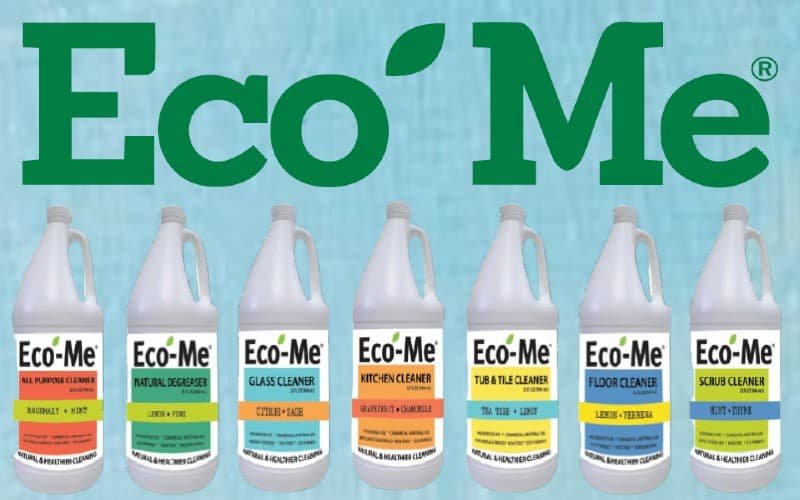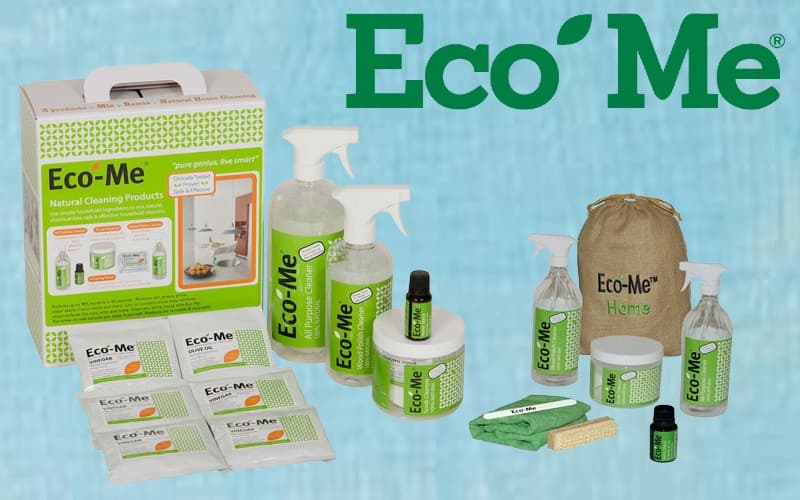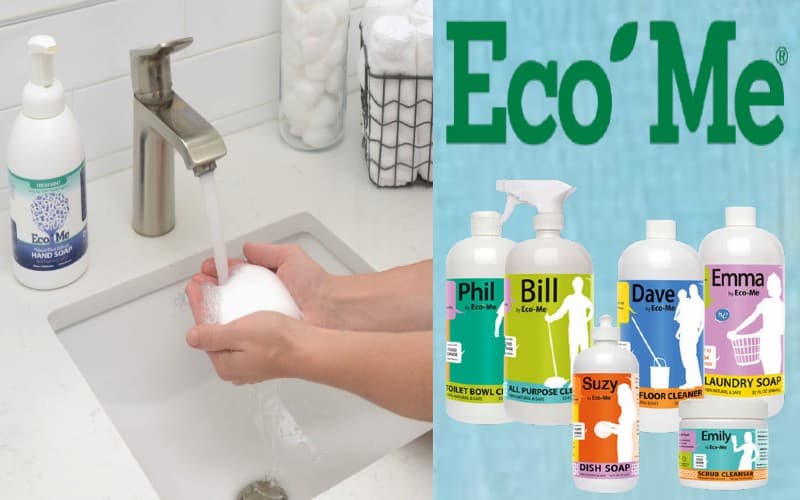Robin Kay Levine established Eco-Me in 2006 after cleaning her sister’s home and being turned off by the strong chemical aromas from the usual cleaning products she was using. She began manufacturing her own eco-friendly, all-natural cleaning products and enlisted the aid of her buddy Jen.
Robin and Jen swiftly expanded their business from a single all-natural DIY cleaning kit to a 17-product line offered at Target, Whole Foods, and other retailers. Robin and her friend Jen worked hard to make Eco-Me successful, and the company eventually expanded to six workers and a profit of $500,000.
While the company was in trouble, with debts totaling more than half a million dollars, The Profit host Marcus Lemonis recognized the recent popularity and trends in the booming cleaning products industry toward all-natural cleaning products. Marcus wanted to explore whether he could assist Robin in making Eco-Me successful and moving the firm forward.
Table of Contents
On The Profit, Eco-Me
Episode 4 Of Season 1 Of The Profit
When Marcus arrived at Eco-Me, the first thing he noticed was employees manually filling bottles and applying labels, an inefficient method of production that he saw as a major problem. He complimented Robin on the branding work she and Jen had undertaken. Jen, on the other hand, lives across the nation from Robin, and Marcus questioned the value of working with someone who was so far away. Jen had been a great resource for the company’s early sales success, Robin added, and they were really pleased with what they had done together so far.
As the company’s debt swelled to $500,000., Robin informed Marcus she hadn’t received a payment since she established the firm, and Jen hadn’t been compensated for her services in a long time. Both were concerned that the company would fail if they did not receive some funding.
Vinegar, water, a solubilizer, and a blend of essential oils are used to make Eco-Me products. A personal name was given to each product, such as “Dave” for a floor cleaner. This naming procedure was described by Marcus as the worst marketing concept he had ever heard. However, the names were crucial to Robin, who said that what buyers saw on the shelf was what mattered most. Marcus objected, claiming that what mattered was what was within the bottle, and telling Robin she was making a mistake. While she appreciated Marcus’ viewpoint, Robin stated that he was incorrect.
Marcus outlined what he believed to be Eco-most Me’s serious problems, including a lack of suitable production equipment and an inefficient manufacturing process, as well as his worries about the sales force being thousands of miles away from the company’s headquarters.
Marcus was told about the time-consuming and arduous manufacturing process that included broken equipment and manually putting labels on bottles by a member of the production crew. The manufacturing crew could only create 1,200 bottles at a time, preventing huge orders with larger profit margins from being filled. He was astounded to hear that filling a single cylinder may take up to a minute. This could not be tolerated.

The Profit presenter was a firm believer in Eco-product Me’s range and the folks who run it. Robin was given $500,000 in return for a 20% stock stake in the firm. Of course, part of the arrangement was Marcus taking over the company for a week. He planned to pay off their debt, buy new manufacturing equipment, and take over the financial management.
Robin, like many other business owners who come to The Profit, was apprehensive to relinquish control of the firm she had established, but she was ready to make the sacrifice to help rescue her company. She was worried Marcus might fire one of her staff, but she took the cheque and handed Eco-Me over to him.
Marcus highlighted the flaws he noticed in the management of Eco-Me to the rest of the team as he announced he would be taking over the business operations for a week, saying that everyone in the firm had a lot to lose if things remained as they had been. A $180,000 new manufacturing equipment was able to produce filled and labeled bottles 10 times quicker than the previous method.
Marcus had brought in a few customers to assess Eco-items, Me’s and they started criticizing the labeling and product names, claiming that the product was not ready. Jen became defensive right away and was unable to provide a clear description of what the product performs. Jen, Marcus believed, was not in the ideal sales position.
Marcus called in a focus group to examine the items and branding, but they didn’t like the Eco-Me product name and labeling. Marcus was forthright with Robin, informing her that the names had to go, which irritated her and caused her to walk away. Finally, she admitted that she had made some terrible branding decisions.

Marcus hired a graphic designer to develop a new logo for the Eco-Me product bottle, which is fashioned like a tree. Robin objected to the rebranding, but Marcus was in control at this time.
Marcus then took Jen to a large sales meeting with a senior official from the Strand Hotel, whose company could bring Eco-Me three times the profit. Jen was unprepared and unable to respond to simple product queries. Marcus was underwhelmed by her performance and believed she had failed to prepare for this key encounter. If Jen agreed, he promised to teach her sales skills.
The graphic designer informed Marcus that Robin had changed the labels behind his back. He was furious and informed her that she had betrayed his confidence as well as the terms of their agreement. During their conversation, Robin revealed that she had gone too far and that she is a bit of a control freak.
Robin was pleased with the results when the new manufacturing equipment came and started churning out their goods more effectively, but she realized she could not have succeeded without the support of The Profit and Marcus. Jen was getting better and heeding Marcus’ suggestions, and the company was prospering and growing as a consequence of his efforts.
After The Profit, Eco-Me

Marcus helped Eco-Me organize a strategic asset acquisition with the Kittrich Firm in 2014, selling off his stake of the company, even though he was no longer affiliated with it. Eco-Me continues to operate today.
Royal Pitch is not linked with Eco-Me, The Profit, or any of their companies, and the information presented in this article is only for educational purposes.
Visit the rest of the site for more articles.











0